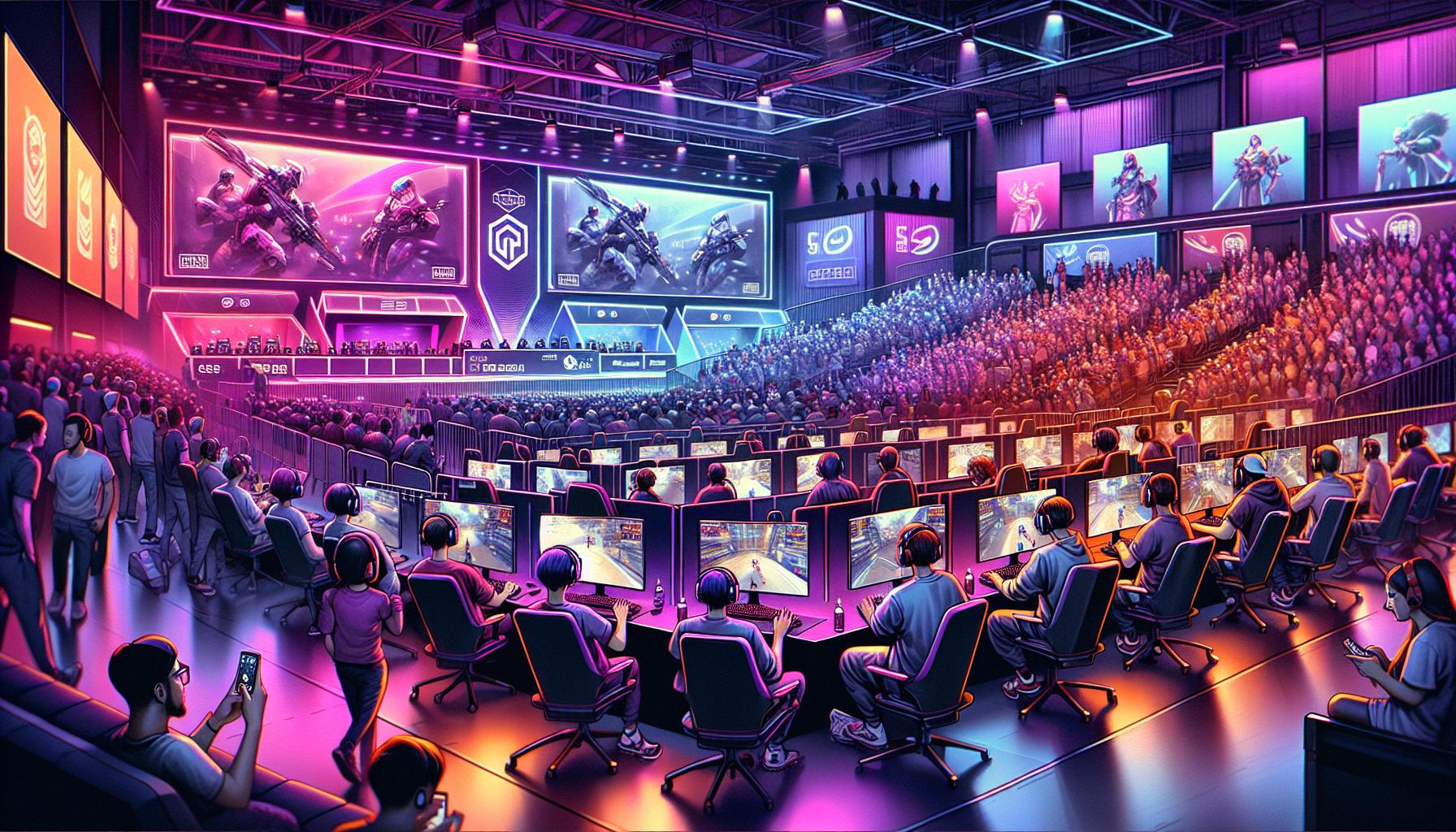Are you ready to dive into the exciting world of esports tournaments?
Organizing a ticketed live event in rapidly growing gaming and esports industry can be both thrilling and challenging. With the right tools and knowledge, you’ll be able to create an unforgettable experience for gamers and spectators alike.
From managing team registrations to setting up bracket systems and integrating live streaming, there’s a lot to consider when planning your ticketed esports competition. But don’t worry – we’ve got you covered. In this guide, you will find the foundational knowledge and the essential steps needed to organize a successful ticketed esports contest, whether you’re planning a small local one or a large-scale tournament with multiple stages.
Here’s a quick overview of what we’ll cover in this article:
- Meticulous planning: Set clear goals, choose the right game(s), determine the competition format, and create a comprehensive spending plan.
- Secure an appropriate location and equipment: Ensure adequate capacity, reliable internet, and high-quality hardware.
- Manage logistics effectively: Establish clear rules, create a detailed schedule, and streamline player registrations.
- Implement smart ticketing and monetization strategies: Use dynamic pricing, choose a robust ticketing platform, and leverage sponsorship opportunities.
- Focus on event day management: Coordinate staff and volunteers, provide technical support, and optimize player and spectator experiences.
Understanding Esports Competitions
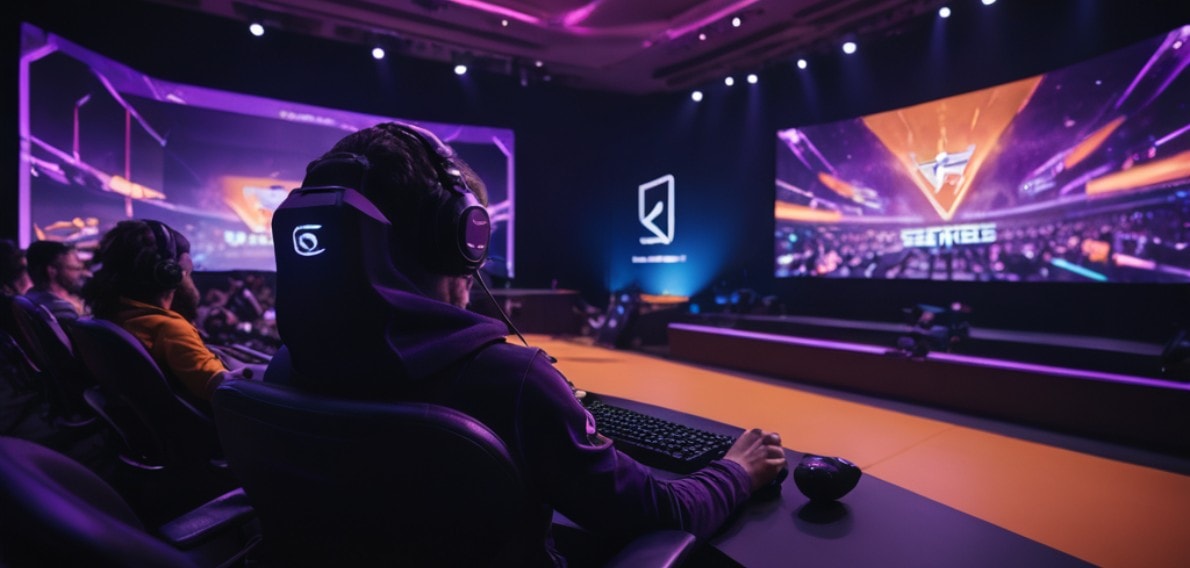
Esports competitions are competitive gaming events where players or teams compete in video games for prizes and recognition. These events have grown exponentially popular in the esports scene, attracting millions of viewers and offering substantial prize pools.
What Is an Esports Tournament or Competition?
An esports tournament or competition is a structured competitive video gaming event where gamers compete in a specific video game or set of games. This type of esports event can range from small local gatherings to large-scale international competitions with prize pools exceeding $30 million, as seen in The International 2019 for Dota 2. Tournaments typically follow various formats, including:
- Single elimination
- Double elimination
- Round robin
- League formats
The choice of format depends on factors such as the game being played, number of participants, and time constraints. For example, a Counter-Strike: Global Offensive (CS:GO) Major tournament often uses a Swiss-system format for initial stages before transitioning to a single-elimination bracket for playoffs.
Types of Esports Events
Esports events come in different forms and sizes, catering to various audiences and objectives:
- Local Area Network (LAN) Tournaments: These events bring players together in a physical location to compete on the same network, reducing latency issues. LAN tournaments foster a sense of community and provide opportunities for face-to-face interaction among players and fans.
- Online Tournaments: These competitions allow players to participate from remote locations, making them accessible to a wider audience. Online tournaments have gained popularity due to their convenience and ability to accommodate large numbers of participants.
- League Play: Esports leagues feature regular season matches leading to playoffs and championships. Examples include the Overwatch League and League of Legends Championship Series (LCS), which follow a structure similar to traditional sports leagues.
- Invitationals: These exclusive gaming tournaments invite top teams or players to compete, often featuring higher prize pools and prestige. The Dota 2 Asia Championships and CS:GO BLAST Premier are examples of invitational tournaments.
- Open Qualifiers: These events allow amateur and semi-professional players to compete for spots in larger tournaments. Open qualifiers provide opportunities for undiscovered talent to break into the professional scene.
Use the foundational knowledge you have to organize an esports event that best suits your target audience and resources. For example, if you’re targeting a local community, a LAN tournament might be ideal. Alternatively, if you’re aiming for a broader reach, an online tournament with a ticketed viewing experience could be more appropriate.
To streamline the ticketing process for your esports event, consider using platforms like Ticket Fairy, which offer features specifically designed for gaming and esports events. These platforms can help you manage ticket sales, track attendance, and provide valuable insights into your audience demographics.
Planning Your Ticketed Esports Event

To organize a successful ticketed esports event, meticulous planning is essential. Follow these key steps to ensure your event runs smoothly and meets your objectives.
Setting Goals and Objectives
Setting clear goals and objectives forms the foundation of your esports competition:
- Define the purpose and scope of your competition, such as showcasing local talent or attracting international teams.
- Determine your target audience, considering factors like age range, skill level, and geographic location.
- Establish measurable objectives, such as ticket sales targets, participant numbers, or social media engagement metrics.
- Decide on the desired outcome, whether it’s community building, profit generation, or brand awareness.
Create a mission statement that encapsulates your event’s purpose and use it to guide your decision-making throughout the planning process.
Choosing the Right Game(s)
Selecting the appropriate game(s) for your competition is crucial for attracting participants and spectators:
- Research popular games within your target audience using platforms like Twitch or Steam Charts to gauge current trends.
- Consider the game’s genre (e.g., MOBA, FPS, fighting) and ensure it aligns with your event’s theme and goals.
- Evaluate the game’s competitive scene, including existing tournaments and professional leagues.
- Assess the technical requirements for hosting the game, such as hardware specifications and network infrastructure.
- Verify that you can obtain the necessary licenses and permissions from the game publisher to host a tournament.
Choose a game that balances popularity with your event’s scale and budget constraints.
Determining the Tournament Format
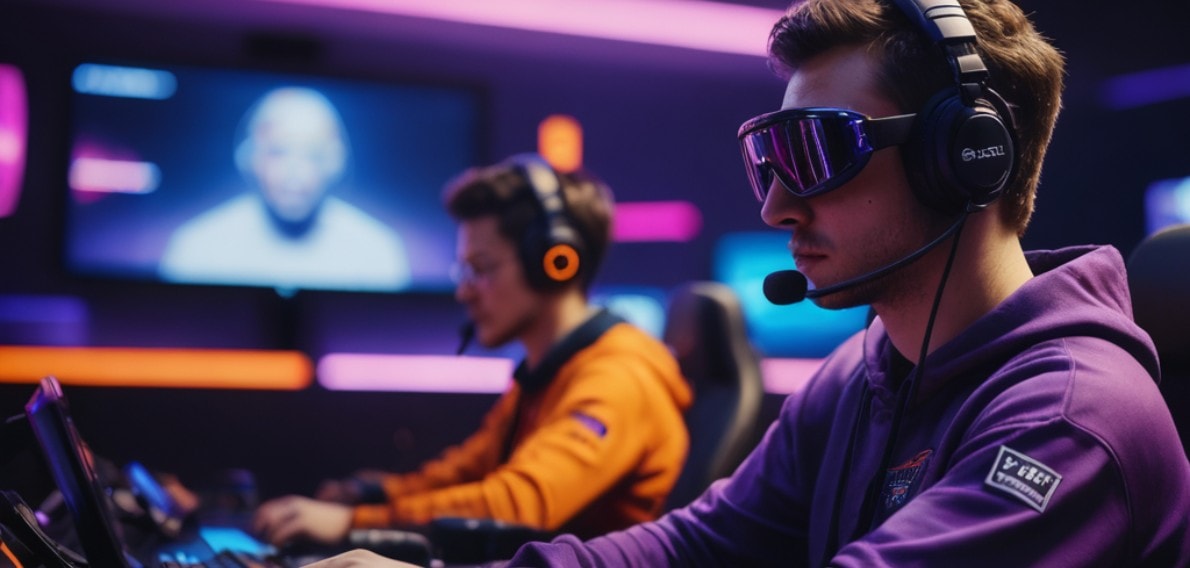
The tournament format influences the event’s duration, participant experience, and overall structure:
- Single elimination: Quick and straightforward, ideal for large participant pools or time-constrained events.
- Double elimination: Offers more play time and second chances, suitable for mid-sized tournaments.
- Round robin: Provides maximum match-ups but requires more time, best for smaller groups or league-style events.
- Swiss system: Balances match fairness and time efficiency, often used in card game tournaments.
Consider factors such as:
- Number of expected participants
- Available time and venue capacity
- Desired level of competition and spectator appeal
- Game-specific considerations (e.g., best-of series, map rotation)
Use tournament management software to streamline bracket creation and match scheduling. Platforms like Ticket Fairy often integrate with popular tournament organizers, simplifying the process of managing participants and updating brackets in real-time.
Creating a Budget
Developing a comprehensive budget is critical for the financial success of your esports competition:
Estimate revenue sources:
- Ticket sales (use Ticket Fairy’s analytics to project attendance based on similar events)
- Sponsorships
- Merchandise sales
- Concessions
- Streaming rights or ad revenue
Calculate expected expenses:
- Venue rental and associated costs (e.g., security, cleaning)
- Equipment (computers, consoles, peripherals, networking)
- Staff and volunteer costs
- Marketing and promotion
- Prize pool
- Insurance and licenses
Consider additional financial factors:
- Set aside a contingency fund (typically 10-20% of the total budget)
- Plan for cash flow, accounting for when payments are due versus when revenue will be received
- Research potential grants or subsidies for esports events in your area
Use budgeting tools:
- Utilize spreadsheet software or specialized event budgeting applications
- Implement Ticket Fairy’s financial reporting features to track real-time ticket sales and revenue
By creating a detailed budget, you can identify potential financial risks and opportunities, ensuring your esports tournament remains financially viable throughout the planning and execution phases.
Securing the Venue and Equipment
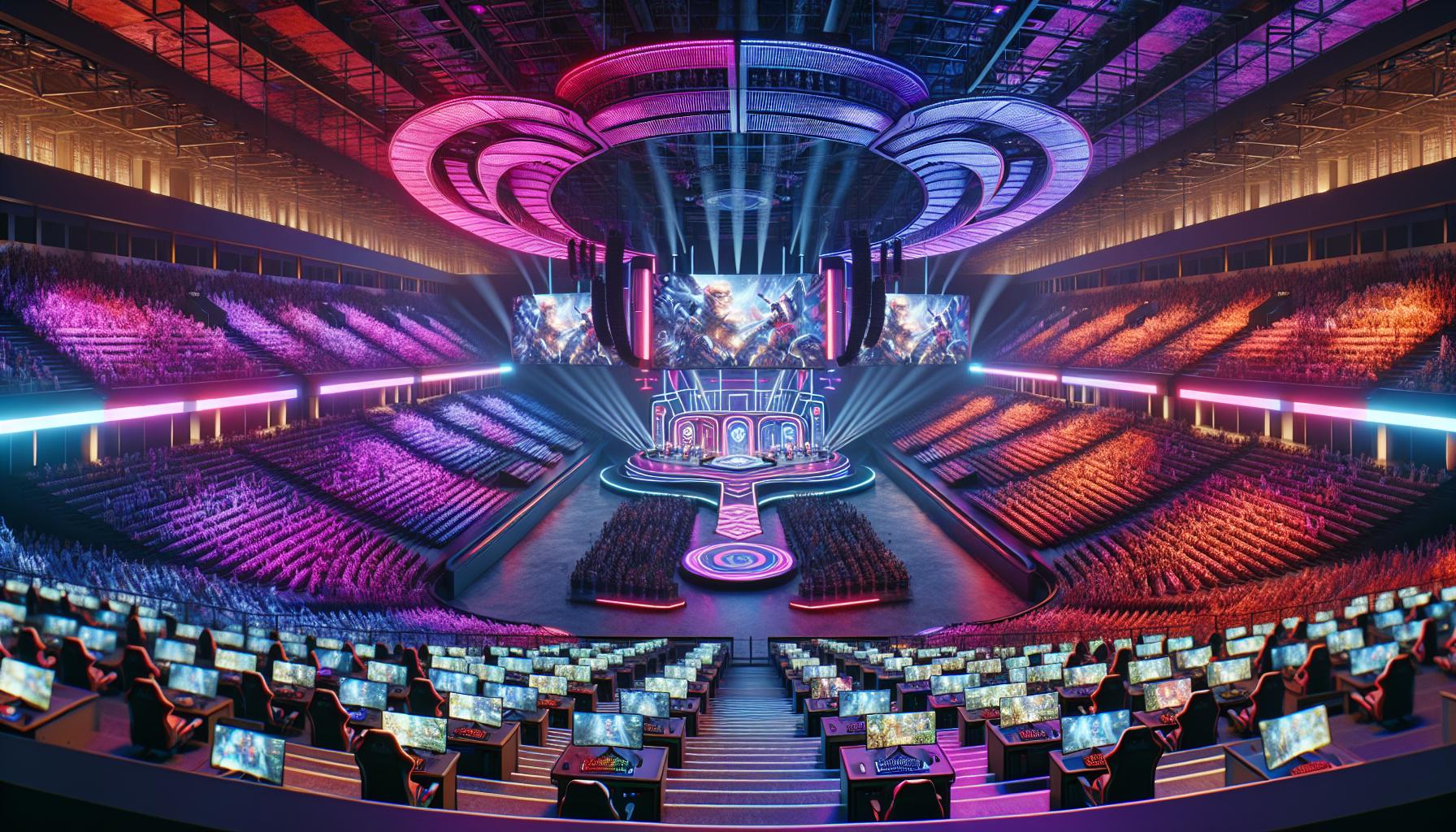
Securing an appropriate venue and equipment is crucial for hosting a successful ticketed esports competition. This section outlines key considerations for venue selection and essential hardware requirements.
Venue Selection Criteria
Select a venue that meets the following criteria:
- Capacity: Choose a venue that accommodates your estimated audience size. Consider both seated and standing areas.
- Licenses and Permits: Verify that the venue possesses all necessary licenses and permits for hosting an esports event. This includes entertainment licenses and occupancy permits.
- Internet Connection: Ensure a robust and reliable internet connection with sufficient bandwidth for smooth gameplay and live streaming. A minimum of 1 Gbps symmetrical connection is recommended for large-scale tournaments.
- Power Supply: Confirm the venue has a stable power supply to support all gaming equipment, lighting, and audio-visual systems. Calculate the total power requirements and ensure the venue can handle the load.
- Parking and Accessibility: Provide ample parking spaces and easy accessibility for attendees. Consider proximity to public transportation and accessibility for those with disabilities.
- Restrooms and Seating: Ensure sufficient restrooms and comfortable seating for attendees. A general rule is one toilet per 50 attendees for events lasting more than 6 hours.
Essential Hardware and Software
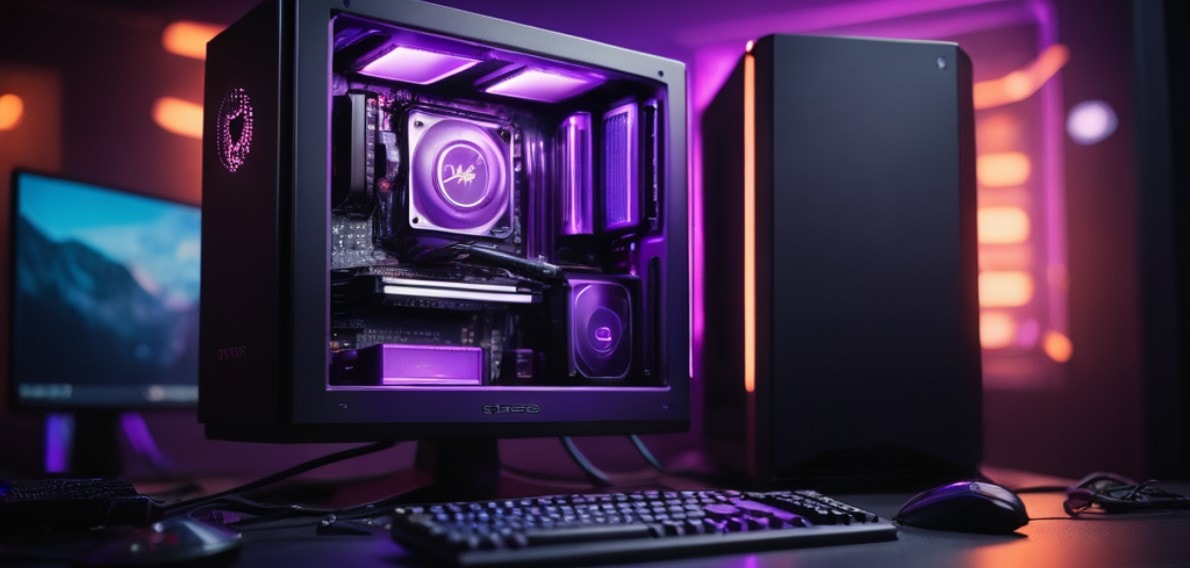
Equip your venue with the following hardware and software:
Gaming Equipment:
- PCs or consoles: High-performance gaming systems capable of running the tournament games at optimal settings
- Monitors: Low-latency gaming monitors with high refresh rates (144Hz or higher)
- Keyboards and mice: Professional-grade gaming peripherals
- Headsets: Noise-canceling headsets for clear communication
- Controllers: For console-based tournaments
Audio-Visual Equipment:
- Large screens: LED walls or projectors for spectator viewing
- Sound system: High-quality speakers and audio mixing equipment
- Streaming equipment: Capture cards, cameras, and microphones for broadcasting
Tournament Management Software: Utilize specialized software for bracket management, score tracking, and livestream integration.
Technical Setup Requirements
Ensure a seamless technical setup:
- Network Infrastructure:
- Set up a dedicated LAN for gaming stations with a minimum of 1 Gbps ethernet connections
- Implement network segmentation to separate gaming traffic from spectator Wi-Fi
- Backup Systems:
- Install Uninterruptible Power Supplies (UPS) for critical equipment
- Prepare backup internet connections (e.g., 4G/5G modems) in case of primary connection failure
- Cooling and Ventilation:
- Ensure proper cooling for gaming equipment and spectator areas
- Calculate heat output from all equipment and adjust HVAC systems accordingly
- Cable Management:
- Use cable trays and covers to organize and protect wiring
- Label all cables and connections for easy troubleshooting
- Testing and Rehearsal:
- Conduct a full technical rehearsal at least 24 hours before the event
- Test all equipment, network connections, and streaming setups under simulated tournament conditions
By meticulously addressing these venue and equipment requirements, you create a solid foundation for success. Remember to use Ticket Fairy’s event ticketing tools to track equipment inventory and coordinate with venue staff for smooth setup and teardown processes.
Organizing Tournament Logistics
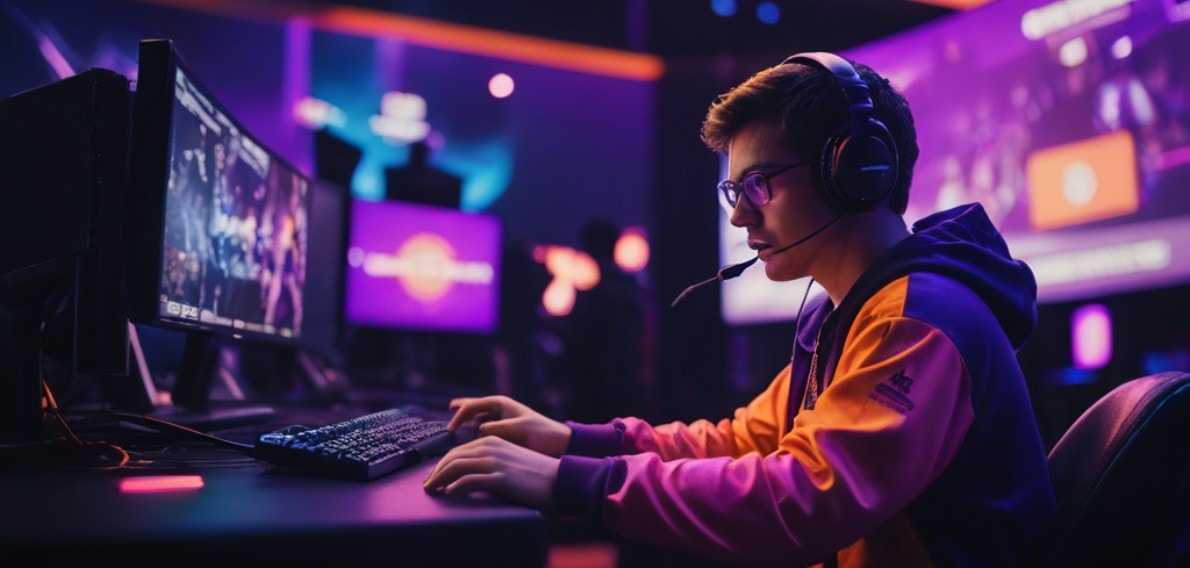
Effective logistics management is crucial for a successful ticketed live events. Focus on these key areas to ensure smooth operations and participant satisfaction.
Establishing Rules and Regulations
Establish clear and comprehensive rules to maintain fairness and prevent disputes:
- Game-specific rules: Define rules based on the chosen game, including allowed settings, equipment, and in-game behaviors.
- Tournament format: Clearly outline the structure, such as single elimination, double elimination, or round-robin.
- Match procedures: Specify match duration, map selection process, and break times between games.
- Player conduct: Set expectations for sportsmanship, prohibited actions, and consequences for rule violations.
- Technical issues: Outline procedures for handling disconnections, hardware failures, or other technical problems.
- Dispute resolution: Create a process for addressing conflicts or rule interpretations.
- Prize distribution: Clearly state the prize pool allocation and payment methods.
Implement a robust rulebook and make it easily accessible to all participants. Consider using Ticket Fairy’s event management tools to distribute and track acknowledgment of rules by registered players.
Creating a Tournament Schedule
Develop a detailed schedule to keep your event running smoothly:
- Registration period: Set a clear timeline for player sign-ups, typically 2-4 weeks before the event.
- Check-in process: Allocate time for player check-ins, usually 30-60 minutes before the tournament start.
- Opening ceremony: Plan a brief (15-30 minute) introduction to kick off the event.
- Match durations: Estimate game lengths based on the chosen title and format. For example, a best-of-three Counter-Strike: Global Offensive match may take 90-120 minutes.
- Breaks and downtime: Schedule 10-15 minute breaks between matches and longer breaks (30-60 minutes) for meals.
- Technical setup time: Allow for equipment checks and warm-ups between matches (15-30 minutes).
- Broadcast schedule: If streaming, coordinate the tournament schedule with your broadcast team.
- Awards ceremony: Plan for a closing ceremony to recognize winners (30-45 minutes).
Use tournament management software to create and adjust your schedule in real-time. Ticket Fairy’s event management features can help you communicate schedule updates to participants and attendees efficiently.
Managing Player Registrations
Implement a streamlined registration process to ensure a smooth start to your tournament:
- Online registration: Set up a user-friendly registration system. Ticket Fairy’s platform offers customizable registration forms for esports events.
- Information collection: Gather essential details like player names, team affiliations, and contact information.
- Age verification: Implement age checks if your tournament has age restrictions. For example, many major competitions require participants to be at least 16 years old.
- Skill-based divisions: Consider creating separate divisions based on player skill levels to ensure fair competition.
- Team management: For team-based games, allow for team registration and roster submissions.
- Payment processing: Set up secure payment options for entry fees. The average entry fee for local tournaments ranges from $10 to $50 per player.
- Waitlist system: Implement a waitlist for popular tournaments. According to Newzoo, esports event attendance grew by 13.8% in 2022, indicating high demand.
- Confirmation and communication: Send automated confirmation emails with important event details upon successful registration.
- Cancellation and refund policy: Clearly communicate your policy for cancellations and refunds.
- Data management: Ensure compliance with data protection regulations like GDPR when collecting and storing participant information.
Utilize Ticket Fairy’s registration management tools to streamline this process, allowing for easy tracking of registrations, payments, and participant communication for live events.
Ticketing and Monetization
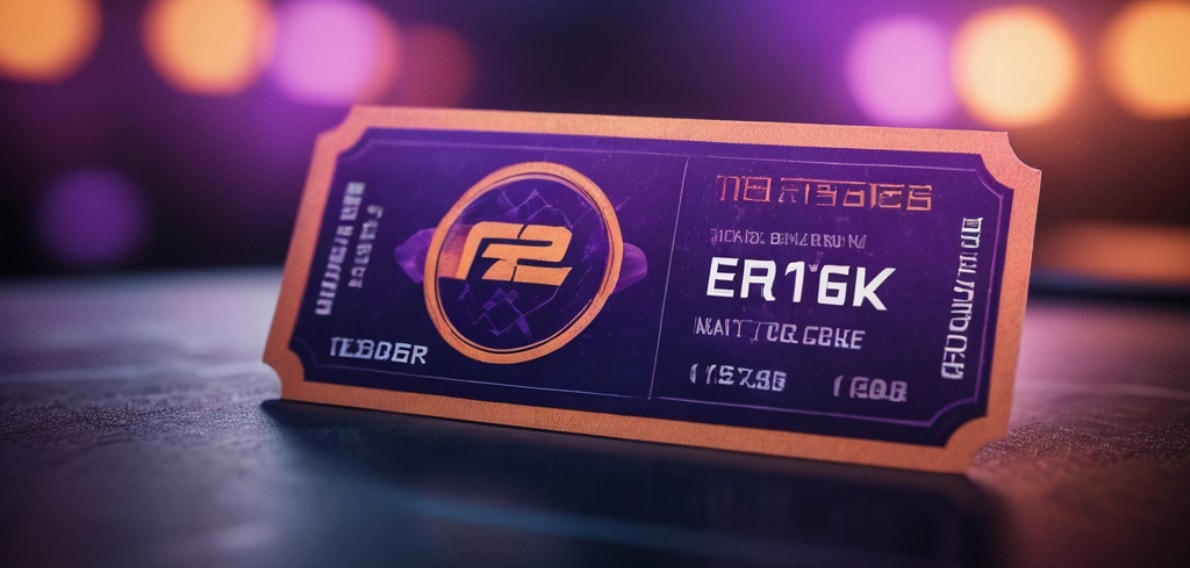
Effective ticketing and monetization strategies are crucial for the financial success of your competition. Implement these approaches to maximize revenue and enhance the attendee experience.
Pricing Strategies
Optimize your ticket pricing to attract attendees and maximize revenue:
- Dynamic Pricing: Adjust ticket prices based on demand and timing. Increase prices as the event date approaches or when ticket sales reach certain thresholds. This strategy can boost early sales and maximize revenue.
- Tiered Pricing: Offer multiple ticket tiers with varying benefits. Create General Admission, VIP, and Ultra VIP options, each with distinct perks such as premium seating, meet-and-greet opportunities, or exclusive merchandise.
- Early Bird Discounts: Incentivize early ticket purchases by offering limited-time discounts. Set a specific number of discounted tickets or a time frame for these offers to drive early sales.
- Group Packages: Encourage larger group attendance by offering discounted rates for bulk purchases. This can attract teams, gaming communities, or corporate groups.
- Student and Military Discounts: Provide special rates for students and military personnel to broaden your audience and show community support.
Ticketing Platforms
Choose a robust ticketing platform to manage sales and enhance the attendee experience:
- Specialized Esports Platforms: Utilize platforms tailored for gaming and esports events, such as Ticket Fairy. These offer features like team registration, tournament brackets, and integration with popular gaming services.
- Multi-Channel Sales: Sell tickets through various channels, including your event website, social media platforms, and partner websites to maximize reach.
- Mobile-Friendly Solutions: Ensure your chosen platform offers a seamless mobile experience for ticket purchases and digital ticket storage.
- Real-Time Analytics: Use platforms that provide real-time sales data and attendee insights to inform marketing strategies and event planning decisions.
- Integrated Marketing Tools: Look for platforms that offer built-in marketing features like email campaigns, social media integration, and affiliate programs to boost ticket sales.
Sponsorship Opportunities
Leverage sponsorships to increase revenue and enhance the event experience:
- Tiered Sponsorship Packages: Create multiple sponsorship levels (e.g., Bronze, Silver, Gold, Platinum) with increasing benefits and exposure opportunities.
- Custom Sponsorship Opportunities: Offer unique sponsorship options such as naming rights for tournament stages, branded player lounges, or sponsored live stream segments.
- In-Game Advertising: Partner with game developers to incorporate sponsor branding within the game environment during matches.
- Digital Activations: Provide sponsors with opportunities for digital engagement, such as sponsored social media content, branded overlays during live streams, or interactive sponsor booths in virtual event spaces.
- Data-Driven Proposals: Use attendee data and previous event metrics to create compelling sponsorship proposals that demonstrate value to potential partners.
- ROI Tracking: Implement systems to track and report on sponsor ROI, including metrics like brand exposure, lead generation, and direct sales impact.
By implementing these strategies, you can create a robust ticketing and monetization plan for your esports competition. Utilize platforms like Ticket Fairy to streamline these processes, offering features such as dynamic pricing, customizable ticket tiers, and integrated sponsorship management tools to maximize your event’s financial success.
Marketing and Promotion

Effective marketing and promotion are a crucial part of esports event management. Implement these strategies to maximize your event’s reach and attendance.
Building an Online Presence
Create a strong online presence to establish credibility and attract participants:
- Develop a professional website: Design an intuitive, mobile-responsive site with essential information about your tournament, including dates, venue, games, prizes, and registration details.
- Optimize for search engines: Incorporate relevant keywords throughout your site to improve visibility in search results.
- Create engaging content: Publish regular blog posts, news updates, and player profiles to keep your audience informed and interested.
- Utilize email marketing: Build an email list and send targeted campaigns to promote your event, offer early bird discounts, and share important updates.
- Leverage live streaming platforms: Establish a presence on popular streaming sites like Twitch or YouTube Gaming to showcase previous tournaments and build anticipation for your upcoming event.
Leveraging Social Media
Harness the power of social media to expand your reach and engage with the esports community:
- Choose the right platforms: Focus on platforms popular among gamers, such as Twitter, Instagram, Discord, and Reddit.
- Create consistent branding: Use cohesive visuals and messaging across all social media channels to reinforce your tournament’s identity.
- Develop a content calendar: Plan and schedule regular posts to maintain audience engagement leading up to the event.
- Run social media contests: Organize giveaways or challenges to boost interaction and attract potential attendees.
- Collaborate with influencers: Partner with popular esports personalities or streamers to promote your tournament and increase credibility.
- Use paid advertising: Invest in targeted ads on social media platforms to reach a wider audience of potential participants and spectators.
- Encourage user-generated content: Create hashtags and incentivize attendees to share their experiences, expanding your organic reach.
Partnering with Gaming Communities
Forge strategic partnerships to tap into existing gaming networks and boost your tournament’s visibility:
- Identify relevant communities: Research and engage with online forums, subreddits, and Discord servers dedicated to the games featured in your tournament.
- Offer exclusive benefits: Provide special discounts or early access to community members to encourage participation and foster goodwill.
- Sponsor community events: Support smaller, local gaming events to build relationships and promote your tournament.
- Collaborate with gaming organizations: Partner with esports teams, gaming clubs, or universities to expand your reach and attract skilled players.
- Engage with game developers: Reach out to the creators of the games featured in your tournament for potential collaboration or endorsement opportunities.
- Host community-driven activities: Organize Q&A sessions, AMAs (Ask Me Anything), or community tournaments to build excitement and foster a sense of involvement.
- Utilize Ticket Fairy’s community tools: Leverage Ticket Fairy’s referral program feature to incentivize community members to promote your event and sell tickets, creating a network effect for your marketing efforts.
By implementing these marketing and promotion strategies, you can effectively build buzz around your esports competition, attract participants and spectators, and establish your event as a must-attend within the esports scene.
Event Day Esports Event Management
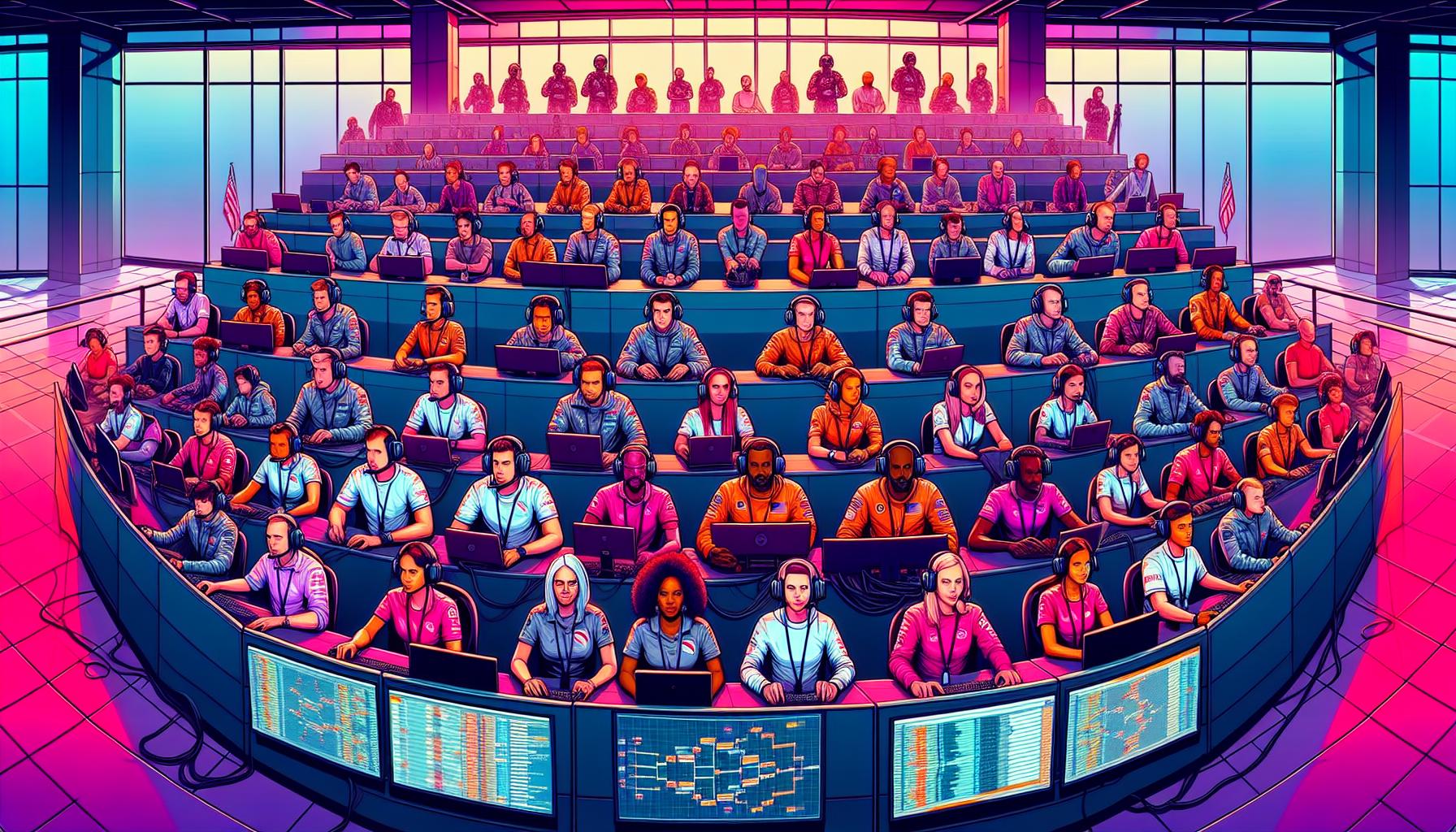
Effective event day management, including proper coordination, technical support, and attention to player and spectator experience, ensures a smooth and enjoyable event for all.
Staff and Volunteer Coordination
Assign specific roles to staff and volunteers to ensure efficient event management:
- Appoint administrators to oversee the overall event operation
- Designate lobby hosts and checkers for registration and player assistance
- Assign producers to manage streaming and broadcast elements
- Select event managers to handle logistics and troubleshooting
Create a team of staff or volunteers to handle various tasks:
- Setup and teardown of the event space
- Player check-in and registration
- Bracket management and scoring
- Refereeing matches and resolving disputes
- Providing technical support and troubleshooting
Implement a clear communication system among staff and volunteers:
- Use walkie-talkies or a dedicated messaging app for instant communication
- Conduct pre-event briefings to ensure everyone understands their roles
- Schedule regular check-ins throughout the event to address any issues
Technical Support and Troubleshooting
Establish a robust technical infrastructure to minimize disruptions:
- Ensure a stable power system with backup generators
- Provide high-speed broadband internet with redundant connections
- Set up necessary technical equipment, including gaming PCs, monitors, and peripherals
- Install proper audio-visual equipment for streaming and spectator viewing
Develop a comprehensive troubleshooting plan:
- Create a detailed checklist for common technical issues
- Designate a dedicated technical support team
- Establish a centralized help desk for quick problem resolution
- Implement a ticketing system to track and prioritize technical issues
Prepare backup plans for critical systems:
- Have spare gaming systems and peripherals on hand
- Create backup copies of tournament brackets and player information
- Develop contingency plans for power outages or internet disruptions
Player and Spectator Experience
Optimize the registration and check-in process:
- Use a specialized esports ticketing platform for efficient registration
- Provide clear information on admission, onsite services, and pricing
- Set up multiple check-in stations to reduce wait times
- Implement a digital queue management system for smoother processing
Create comfortable and functional player areas:
- Design ergonomic gaming stations with adjustable chairs and proper lighting
- Provide warm-up areas for players to practice before matches
- Offer secure storage for personal belongings
Enhance the spectator experience:
- Install large screens or projectors for optimal viewing
- Set up a dedicated commentary area for live match analysis
- Create engaging side activities, such as meet-and-greets or gaming exhibitions
- Provide comfortable seating areas with clear sightlines to the main stage
Implement crowd management strategies:
- Design clear signage and wayfinding elements throughout the venue
- Establish separate areas for different activities to prevent overcrowding
- Train staff on crowd control techniques and emergency procedures
Post-Tournament Activities
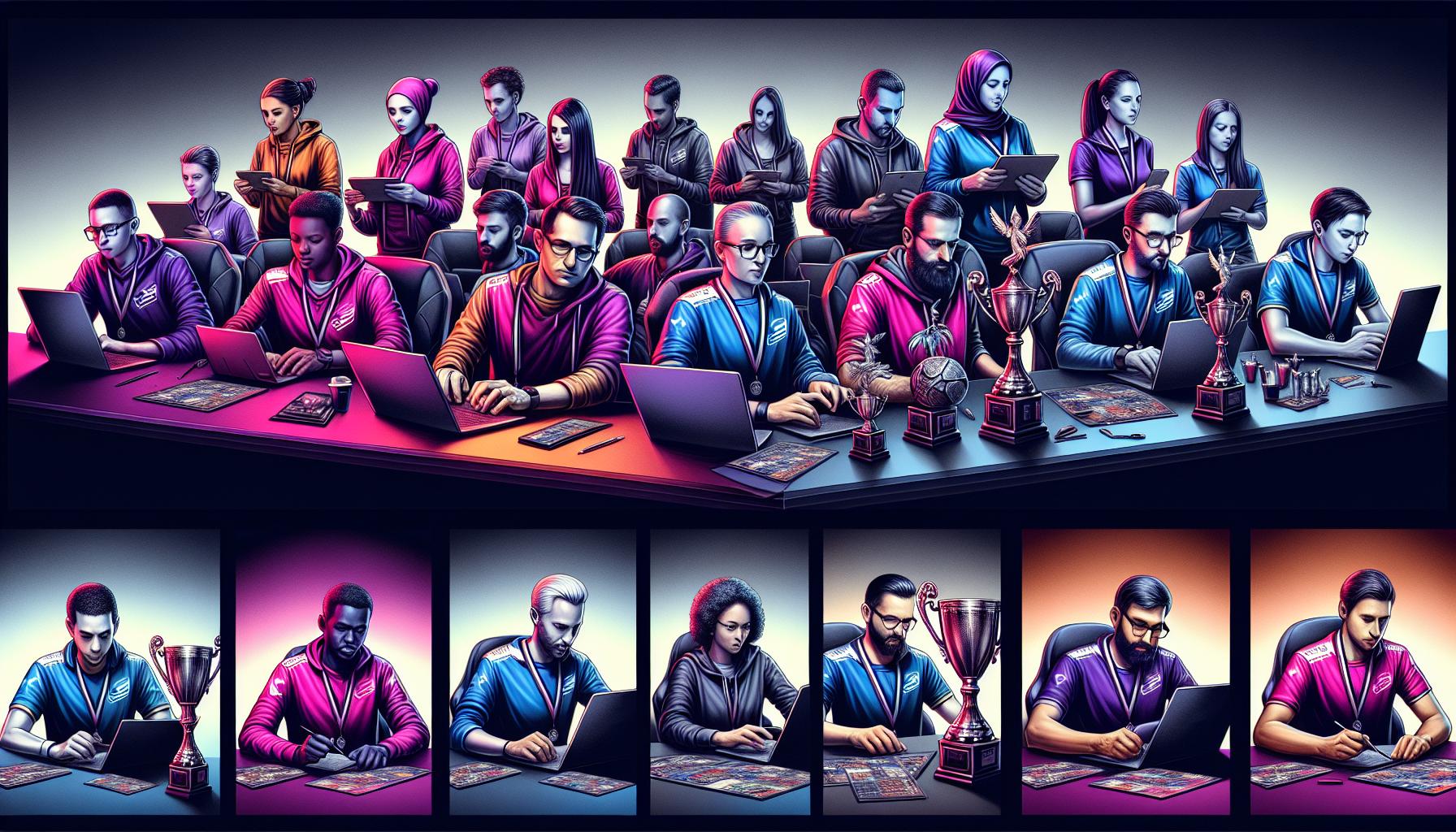
After the excitement of the tournament subsides, your work as an esports event manager continues. Post-tournament activities are give you the unique opportunity to wrap up the event professionally, setting the stage for future success in the esports scene.
Prize Distribution
Distribute prizes promptly and professionally to maintain the integrity of your tournament. Prepare all prizes in advance and communicate the distribution process clearly to winners. Consider these steps:
- Verify winner identities and prize allocations before distribution
- Create a designated area for prize distribution away from the main event space
- Use a formal ceremony to present prizes, enhancing the experience for winners and spectators
- Document prize distribution with photos or videos for marketing future events
- Ensure compliance with local tax laws regarding prize winnings
For larger tournaments, consider using Ticket Fairy’s payout management system to streamline the process and provide a transparent record of transactions.
Gathering Feedback
Collect comprehensive feedback to improve future events and demonstrate your commitment to the community. Implement these strategies:
- Design surveys using platforms like Google Forms or SurveyMonkey
- Include questions about various aspects of the tournament (e.g., venue, schedule, game selection)
- Use a mix of multiple-choice and open-ended questions for detailed insights
- Offer incentives like discount codes for future events to encourage participation
- Analyze feedback using data visualization tools to identify trends and areas for improvement
Leverage Ticket Fairy’s post-event survey feature to easily distribute and collect feedback from attendees through your event page.
Evaluating Success and Areas for Improvement
Conduct a thorough evaluation of your tournament to measure its success and identify areas for growth. Focus on these key metrics:
Attendance and engagement:
- Compare actual attendance to ticket sales
- Analyze spectator engagement through social media interactions and stream viewership
Financial performance:
- Calculate total revenue from ticket sales, sponsorships, and merchandise
- Compare actual expenses to your initial budget
- Determine your profit margin and return on investment (ROI)
Technical performance:
- Assess the reliability of gaming equipment and network infrastructure
- Evaluate the effectiveness of your esports event management software
Marketing and promotion:
- Analyze the performance of different marketing channels
- Calculate the cost per acquisition for attendees
Player and spectator satisfaction:
- Review feedback survey results
- Monitor social media sentiment about the event
Use Ticket Fairy’s analytics dashboard to access detailed data on ticket sales, attendee demographics, and marketing performance. This information can help you make data-driven decisions for future events.
Conclusion
Organizing a ticketed esports tournament is a complex but rewarding endeavor. With careful planning meticulous execution and attention to detail you can create an unforgettable experience for players and spectators alike.
From choosing the right games and format to managing logistics and promoting your event success lies in the details. Leverage specialized platforms like Ticket Fairy to streamline your processes and enhance the overall experience. Remember to learn from each event refining your approach for future tournaments. By following these guidelines you’ll be well-equipped to host successful esports events that leave a lasting impact on the gaming industry.
What are esports tournaments?
Esports tournaments are competitive gaming events where players or teams compete in video games for prizes and recognition. These events can range from small local competitions to large-scale international tournaments with substantial prize pools. Live events have surged in popularity amongst esports enthusiasts, attracting millions of viewers worldwide and offering significant opportunities for players, organizers, and sponsors alike.
How do I choose the right game for my esports competition?
Choosing the right game involves researching popular titles and their competitive scenes. Consider factors like the game’s player base, spectator appeal, and compatibility with your event goals. Look for games with established esports communities and those that align with your target audience. It’s also important to ensure you have the necessary licenses and permissions to host a tournament for the chosen game.
What are the different types of tournament formats?
Common tournament formats include single elimination, double elimination, round robin, and league play. Single elimination is quick but unforgiving, while double elimination gives players a second chance. Round robin allows all teams to play each other, and league formats span longer periods with regular matches. Choose based on your event’s size, time constraints, and desired competitiveness level.
How do I create a budget for my esports tournament?
Start by outlining all potential revenue sources (ticket sales, sponsorships, merchandise) and expected expenses (venue rental, equipment, staff, prizes). Use budgeting tools to track finances and consider using platforms like Ticket Fairy for financial reporting. Be sure to include a contingency fund for unexpected costs. Strong budgeting is crucial for successful esports events.
What equipment do I need for an esports tournament?
Essential equipment includes high-performance gaming systems, monitors, peripherals (keyboards, mice, headsets), and backup hardware. You’ll also need audio-visual equipment for broadcasts and displays. Ensure a robust internet connection and stable power supply. Consider tournament management software for smoother operations. Always have spare equipment on hand to quickly address any technical issues during the event.
How can I effectively market my esports tournament?
Build a strong online presence through a professional website and active social media accounts. Utilize email marketing and leverage live streaming platforms. Engage with the esports scene online and collaborate with influencers. Consider paid advertising on platforms popular among gamers. Create engaging content and run promotions or contests to build buzz. Consistent branding and a well-planned content calendar are key to effective marketing.
What are some ticketing strategies for maximizing revenue?
Implement dynamic pricing to adjust ticket prices based on demand. Offer tiered pricing with VIP options for premium experiences. Use early bird discounts to encourage early purchases. Create group packages and special rates for students or military personnel. Choose a robust ticketing platform like Ticket Fairy that specializes in esports events for efficient sales management and enhanced attendee experiences.
How do I manage logistics on the day of the tournament?
Assign clear roles to staff and volunteers, including administrators, lobby hosts, and event managers. Ensure smooth registration and check-in processes. Prepare comfortable player areas and enhance spectator experiences with entertainment and amenities. Implement effective crowd management techniques. Have a dedicated technical support team ready to address any issues promptly. Clear communication among all team members is crucial for smooth operations.
What should I do after the tournament ends?
Distribute prizes promptly and according to the predetermined structure. Gather comprehensive feedback from participants, spectators, and staff through surveys. Evaluate the tournament’s success based on attendance, financial performance, technical reliability, and participant satisfaction. Use tools like Ticket Fairy for efficient feedback collection and analytics. This post-event analysis is crucial for improving future tournaments and building a positive reputation in the esports community.
You May Also Like:
How Live Chats And Communication Are Creating Transformative and Unforgettable Live Experiences
5 Technological Innovations That Will Create A Better Experience At Your Event
